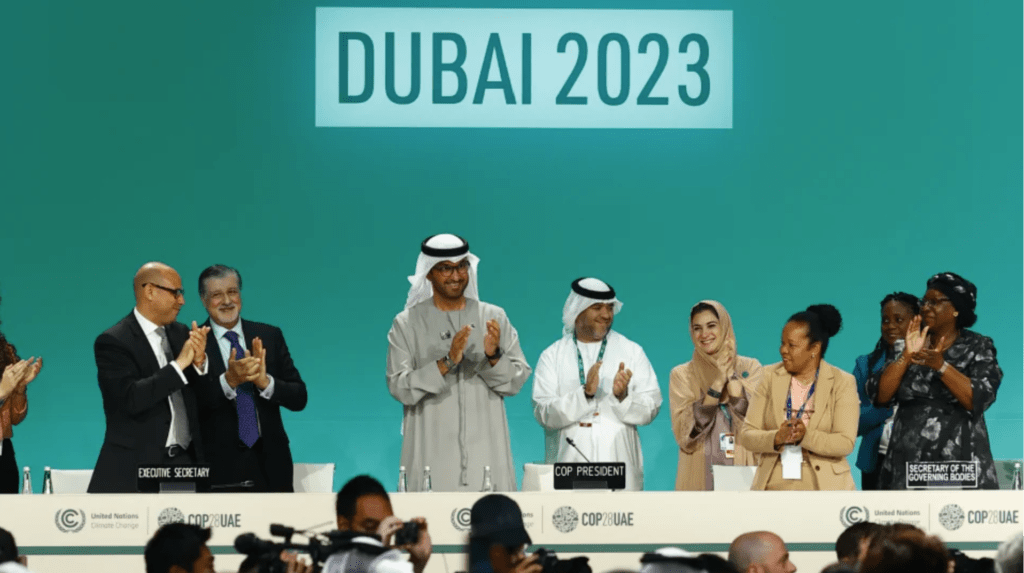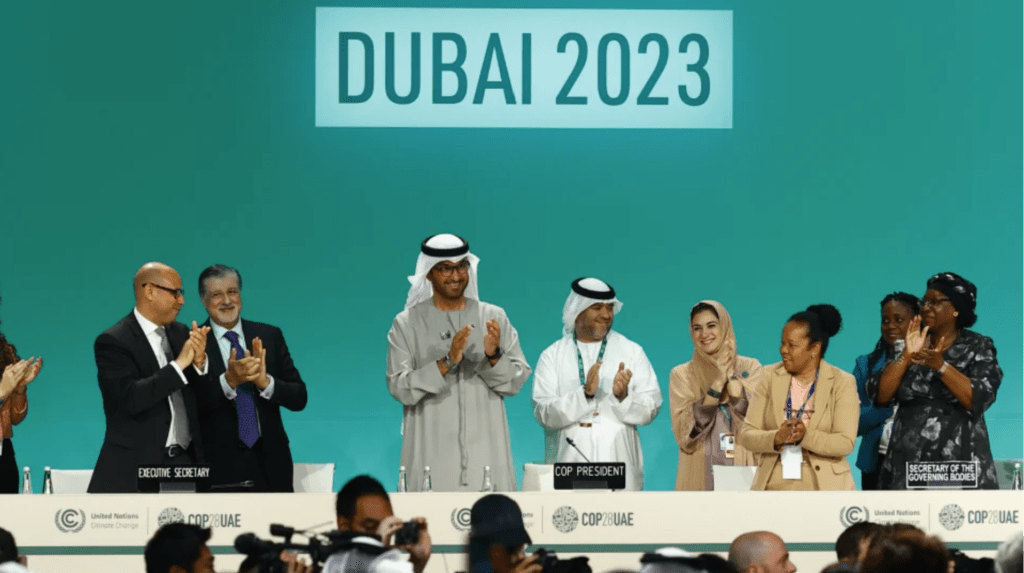
The vibrant city of Dubai (UAE) recently hosted the 2023 United Nations Climate Change Conference, more commonly known as “COP28”. The conference took place from 30 November to 12 December at Expo City, Dubai. COP28 brought once again global attention to environmental issues – one of the main advantages of this annual gathering – but the debate also extended beyond climate policies, among others with a groundbreaking discussion on healthcare’s pivotal role in environmental sustainability. This blog post delves into the intersection of healthcare and environmental responsibility, exploring the impact, challenges, and promising solutions that emerged from the first-ever Health Day at COP28.
Dubai, like many other regions, grapples with the substantial environmental impact of the healthcare sector. Hospitals and clinics, vital for public health, significantly contribute to carbon emissions, resource consumption, and environmental pollution. Globally, the health sector is responsible for 4–5% of the world’s greenhouse gas emissions. It’s thus important for the health sector to not only help mitigate climate change but also make sure we get the most health benefits from these changes.
The discussion at COP28 highlighted the interconnectedness of healthcare and the environment, stressing the need for urgent action to address these challenges. By now most of us see the increasingly dire impact of climate change in our own countries, and this is probably only the beginning. Global warming is already leading to heat-related illnesses, particularly affecting vulnerable populations. Climate change also influences disease vectors, introducing health threats to new regions. Additionally, extreme weather events disrupt healthcare services, posing challenges in resource allocation. Against the global backdrop of (accelerating ?) climate change, it seems essential that the health care sector does all it can to urgently integrate sustainability into healthcare practices. This transition is vital for public health and safety. Moreover, it also aligns with the growing recognition of healthcare sustainability and eco-friendliness as integral components of health quality, as highlighted in recent reports.
Navigating Challenges in Healthcare Sustainability
Despite the evident need for change as highlighted at COP28, the healthcare sector faces substantial hurdles. Resistance to change, budget constraints, regulatory barriers, and a lack of awareness among healthcare professionals hinder progress. Overcoming these challenges requires a concerted effort from various stakeholders.
Like in all commercial determinants of health debates, regulations and policies also play a crucial role in shaping healthcare sustainability. However, even without taking into account the ecological dimension, their effectiveness varies, posing challenges in achieving consistency and enforcement. To tackle health care sustainability, that will no doubt be similar. Opportunities for improvement include standardization, enhanced monitoring, incentives for sustainability investments, and global collaboration to set standards.
Unveiling the Impact & Solutions
Many healthcare institutions are already leading on sustainability. Adopting green building standards, energy-efficient practices, and responsible procurement are becoming the norm. Real-world examples, such as Cleveland Clinic’s (USA) and Emirates Health Services (including Fujairah Hospital, UAE) energy efficiency programs, or John Radcliffe Hospital’s CHP plant (UK), showcase the positive impact of sustainable practices on both the environment and the bottom line.
Technology, from telemedicine to digital health records and innovative medical equipment, also contributes significantly to healthcare sustainability. These innovations not only reduce environmental footprints but also enhance overall healthcare efficiency.
Collaboration between healthcare providers, government agencies, and environmental organizations is paramount. Public-private partnerships, in particular, can maximize collective impact, ensuring a comprehensive approach to healthcare sustainability.
Last but not least, leadership within the healthcare sector is pivotal. By integrating eco-friendly practices into facilities and operations, learning from best practices, leaders set an example for their teams and inspire others. Prioritizing energy-efficient technologies, waste reduction measures, and sustainable procurement practices can lead to positive change.
A collective call to action for the health community
As reported in world media, COP 28 triggered plenty of Global Climate Action. Although “health” wasn’t part of the official negotiations yet, this time, the COP28 UAE Declaration on Climate and Health highlighted that healthcare’s role in environmental sustainability is also a pressing global concern. In the end, healthcare’s responsibility in this respect embodies a moral and ethical imperative rooted in the commitment to “not harm.” The urgency of addressing healthcare’s environmental impact is evident, and the time to act is now. Together, through collaboration, commitment, education, advocacy, policy improvements, and public engagement, we can ensure that healthcare not only heals but also contributes to a healthier and more sustainable planet. This collective responsibility defines our legacy and shapes the well-being of future generations.

Photo source: COP28 website